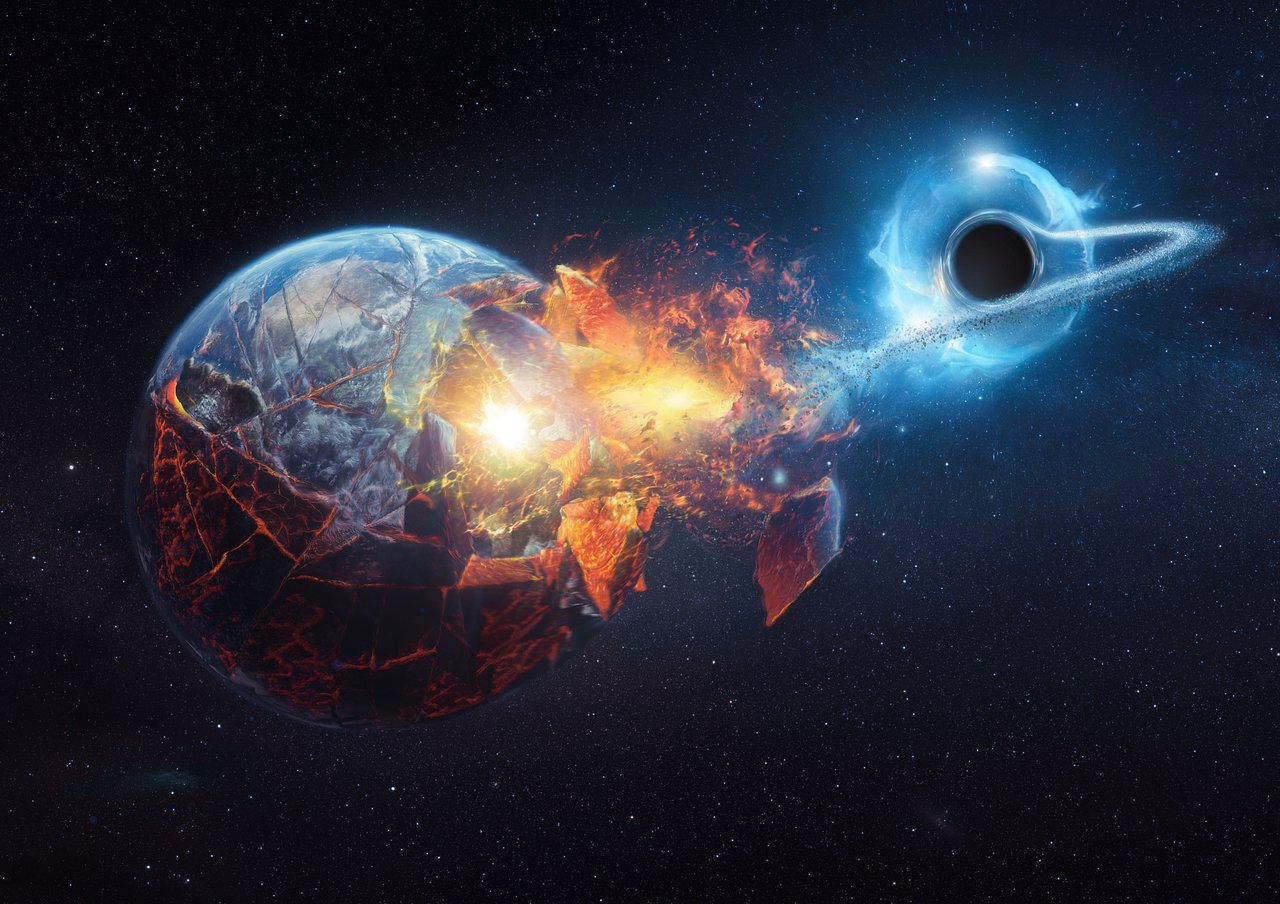
What if a teaspoon of neutron star appeared in the Earth's centre?
Share
Neutron stars are incredibly dense objects composed mainly of neutrons, with hardly any protons or electrons. Due to the absence of electrons, which usually occupy significant space within atoms, neutronium is incredibly compact and dense. If just one cubic centimetre of neutronium appeared on Earth, it would weigh a staggering average of 1.1 billion tons – equivalent to the weight of about 183 Great Pyramids of Cheops!
Earth's Feeble Gravity and Unstable Neutronium
But the problems wouldn't end with the colossal weight. Neutronium is unstable in Earth's environment. The neutrons it comprises would start undergoing a process called beta minus decay, where neutrons transform into hydrogen. This process happens quite rapidly, with a half-life of around 10 minutes. While the energy release from beta decay is typically lower compared to other types of decay, the sheer mass of neutrons involved would lead to an immensely powerful and catastrophic release of energy.
The Unleashing of Unimaginable Energy

The complete decay of just 1 cubic centimetre of neutronium would release an astonishing energy equal to 20 billion megatons – that's 200 times the energy unleashed by the asteroid impact that led to the end of the Cretaceous period and the extinction of the dinosaurs. However, this wouldn't result in a single massive explosion. Instead, the released energy would manifest as an overwhelming surge that would dissipate over about an hour. As the formed hydrogen ignites, it would contribute to the already colossal amount of energy unleashed.
A Planet-Altering Cataclysm
The consequences of this event would be catastrophic on a planetary scale. Earth's ecosystems would be shattered, resulting in the extinction of countless species. Humans, despite their remarkable adaptability, would likely succumb to the upheaval as well. The energy release and ensuing chaos would reshape the Earth's landscape and environment in unimaginable ways, creating a new and hostile world.
While this scenario may remain in the realm of speculation, it serves as a reminder of the delicate balance that exists on our planet and the potential for even the tiniest of changes to have far-reaching and devastating effects.
ARSE Jnr
The section where we explain the above to 5-year-olds (and Flat Earthers).
Hey there, little scientists! Imagine if a super heavy material from a star far away suddenly landed in the middle of our Earth. It might sound like a wild story, but it could cause some really big problems!
This special material is called neutronium, and it comes from stars called neutron stars. Neutron stars are like star rocks that are super heavy and super tiny. They're made of tiny pieces called neutrons.
Now, if we had just a tiny bit of this neutronium on Earth – like a little piece – it would be as heavy as a whopping 1.1 billion elephants! That's much, much heavier than anything we know on Earth.
But here's the tricky part. Neutronium doesn't like being on Earth. It's used to being in space, and it's not happy here. It starts changing into something else called hydrogen. This change makes a lot of energy, like a really strong explosion.
If this happened, the energy from this little piece of neutronium would be like 20 billion megatons! That's like having 200 big dinosaur-ending asteroids all at once. But it wouldn't happen all at once. The energy would come out slowly, like a huge wave.
This big energy wave would shake our planet a lot. It would change everything – our homes, the land, and even the air we breathe. Plants and animals would have a really hard time living. And even humans might find it super tough to survive.
Now, don't worry too much, because this is just a big "what if." It's like a crazy idea that scientists think about. Our Earth is safe and sound, and we're here to take care of it!
Remember, even though this is a fun story, it's also important to take care of our planet and make sure nothing weird happens to it. Keep exploring, little scientists!
You’ve come this far…
Why not venture a little further into A.S.S. - our exclusive Australian Space Society.
And keep thrusting Australia into the deep unknown…
#Space_Aus




